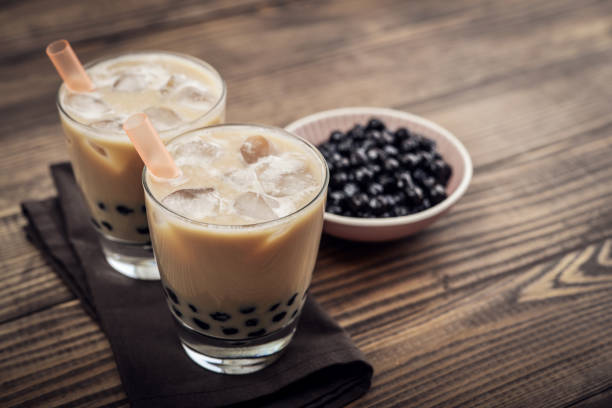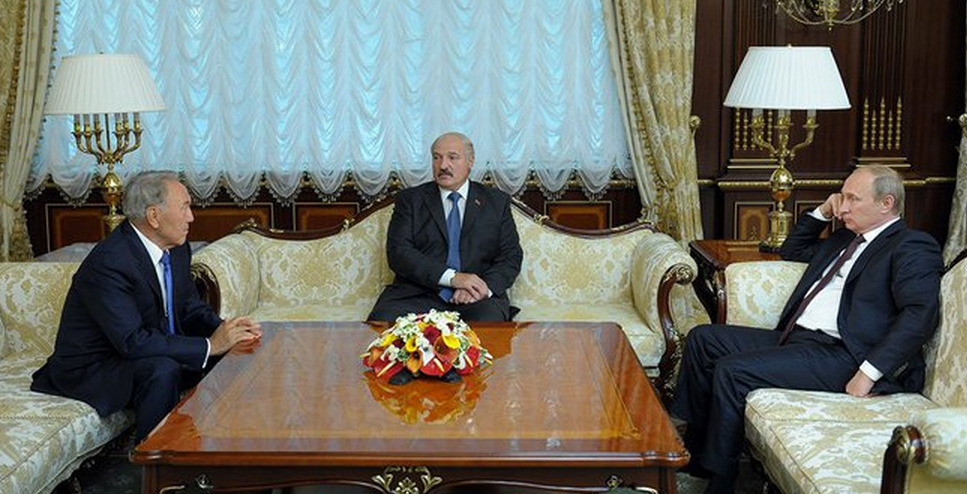For many Asian Americans, boba is a popular drink of choice. Boba, a tea-based drink with tapioca pearls, has become an iconic item in Asian American culture. The drink is often discussed in the popular Facebook group “Subtle Asian Traits” as a cultural symbol and has spurred many critical discussions about identity and belonging. Over the decades since its inception, the famous bubble tea has gained a reputable cult following and has cultivated a positive reputation for Taiwan, its originator.
Boba, the soft and chewy tapioca pearls that make up the “bubble” in “bubble tea,” was invented in Taiwan in the late 1980s. While boba’s origins are technically unclear, as many shops have claimed ownership of its invention, the drink’s positive global reception closely parallels Taiwan’s reputation on the international stage.
In late 2020, Taiwan’s New Power Party announced new passport designs as part of the political initiative to reinvent Taiwan’s identity. One passport design that garnered the most attention for its striking combination was of a blue bird with a cup of bubble tea perched atop its head. The novelty of the design gained widespread attention, with international media outlets from Quartz to CNN Travel covering and commenting on its unique creativity.
In the end, the bubble tea design did not take first place and consequently, was not selected as the final passport. Yet according to Quartz, the design competition itself is representative of larger conversations about Taiwan and its place in debates about mainland China. This is because the competition, which originally began as an initiative to remove the term “Republic of China” from the Taiwan passport, involves Taiwan’s desire to rebrand themselves as quirky and creative — and separate from mainland China.
Since the onset of the pandemic, the Taiwanese people have aimed to promote a positive image of their home, viewing the negative rhetoric about mainland China as an opportunity to define themselves as a separate entity altogether. For many residents of Taiwan, this has meant affirming a distinctly Taiwanese identity and sharing this distinct identity and unique values with the outside world. Representing that identity involves a concerted publicity campaign, strategic nation branding and public diplomacy efforts to market the island to the world. To start, Taiwan has sought to market boba as a popular global consumer good, representative of the island’s most prized cultural icons.
Bubble tea, in that regard, is an effective choice to best represent Taiwan. As a form of gastrodiplomacy, the drink has come to symbolize Taiwan’s innovation in not only food, but also culture. In addition to the bubble tea shops found on almost every block, bubble tea has taken on a new life of its own abroad.
The real agents of Taiwan’s soft power, however, are the Taiwanese people who are bringing boba out of Taiwan and into an increasingly globalized world. Wanpo, for example, is a famous milk tea chain in Taiwan that recently opened its first U.S. location in Palo Alto, California, near Stanford University. Other famous Taiwanese milk tea chains like Tiger Sugar — best known for its brown sugar drinks — have taken the lead in opening shops all over the world, from Europe to Oceania.
Yet, bubble tea is more than a purely commercial venture. Al Jazeera reports that bubble tea has become a prominent driving force for Asian American communities, particularly in the San Gabriel Valley near Los Angeles, where nearly 525,000 Asian Americans reside. For Asian American youth, in particular, consuming the drink serves as a bonding experience and a means of establishing unity through cultural affiliation.
Boba’s popularity within Asian American enclaves is largely attributed to the Taiwanese immigrant communities that first brought it to the United States. Since the early 1990s, it was Taiwanese immigrants who opened the first shops dedicated to bubble tea. According to Clarissa Wei in LA Weekly, decades-old Taiwanese-run bubble tea shops like Tapioca Express, Quickly and Ten Ren can be credited with originating the bubble tea culture.
TPumps, which has shops located all throughout the Bay Area, has created their own spin on traditional bubble tea by adding a unique range of flavors to the mix, including peppermint, gingerbread and guava. Boba Guys, too, is no stranger to innovation. The milk tea chain boasts relatively never-before-seen creations such as espresso milk tea and black sugar hojicha.
Both of these chains, originally inspired by the traditional drinks of Taiwanese shops, are created and run by Asians in the United States. In the United States especially, bubble tea has evolved beyond merely a “Taiwanese” drink to its own type of international cuisine, one that incorporates a variety of flavors. It’s a testament to the global reach and widespread acceptance of Taiwan’s gastrodiplomacy.
The evolution and proliferation of bubble tea in other countries demonstrates its status as a drink with its own individualized international appeal. In that way, bubble tea indirectly symbolizes what Taiwan aspires to represent to the international community: innovation, adaptability to global interests and accessibility. Through economic and cultural means, bubble tea has achieved an international reach and fanbase.
Even as its popularity has become an international phenomenon, bubble tea is fundamentally Taiwanese. This is evidenced by its origins and the perpetuation of its iconography in the Taiwanese political and cultural collective consciousness. From Taiwanese diplomats posing for photos with bubble tea to the creation of a “milk tea alliance” in promotion of Taiwanese democracy, bubble tea has become a political force to be reckoned with and a source of pride.
Bubble tea’s cultural popularity has come to represent what Taiwan’s government desires for the nation as a whole. Conceptually, bubble tea represents a Taiwanese identity, primarily because only Taiwan can claim ownership of its creation.
For that reason, Taiwan has launched bubble tea-related advertising campaigns and has stressed its association with the world-famous drink through Taiwan tourism guides. These endeavors in branding have contributed to the positive association between Taiwan and bubble tea culture.
Bubble tea has become part of a fundamental soft power campaign, and its role in Taiwanese gastrodiplomacy is based on the assumption that bubble tea wasn’t just created in Taiwan, but that at its core, it is Taiwan. In terms of future international endeavors, it’s unlikely that bubble tea on its own can lead to any concrete political upheaval. However, it’s worth paying attention to as a form of Taiwanese marketing.
Taiwan’s positive image abroad as a democracy is correlated with the popularity of its gastrodiplomacy, as seen in the aforementioned “Milk Tea Alliance,” a digital solidarity movement with participants from Hong Kong, Taiwan, Myanmar and Thailand. The movement derives its name from the idea that despite the differences in how the drink is made from region to region, the regions all share the same core democratic values. Since its founding, participants have rallied supporters online to retaliate against Chinese nationalist bots asserting Chinese authoritarianism.
According to the Atlantic, with the work of the Milk Tea Alliance, milk tea has become an “anti-China” symbol. Moreover, it has become an advocacy platform for democracy worldwide. It’s an example of how bubble tea is more than just a cultural tool, but has become emblematic of a larger geopolitical movement.
The closest bubble tea shop doesn’t just sell bubble tea. For Taiwan, it sells a national image.







